The year 2011 is a year most students at Oviedo High School will only have faint memories of, if they have any at all. However, for Kevin Patterson, 2011 signified something special: the start of a new job teaching video production at Oviedo High School.
At first, it was difficult. As a new teacher, Patterson was comfortable with video production, but clueless about how to run a classroom effectively. Though this struggle lasted for a few years, teaching eventually became second nature.
“[Teaching] was what I was excited to be doing,” Patterson said. “I was really interested in building up the program.”
“The program,” of course, refers to Oviedo’s nationally recognized news show, WROR-TV. WROR-TV crew work on daily news reports, as well as longer, more in-depth reporting packages, with some projects even winning national awards. However, it took work to get to where they are now.
“I was really excited to… do the contests that we’re doing, to go to conventions, and just produce a product every day for the school to see,” Patterson said. “We got a chance to do some of the shows that I had planned on, we tried… to do a lot of big themed shows, and that was kind of a big thing over the years that I really worked on doing with my students.”
In another variation of TV Production, Digital Lion Productions, students are given various prompts throughout the year that they must take inspiration from to create short films. Films are then submitted to different state and national competitions, as well as occasionally aired on the daily WROR-TV broadcast. To teach this free-form class, Patterson drove his students to constantly improve upon their previous films and continuously employ new methods to accomplish things. Madison Toledo, a junior in the class, has found Patterson’s approach to be especially helpful.
“Mr. Patterson’s teaching style [was] pretty relaxed, but I think it worked well for him because he always had a goal for us and he did his best to help us achieve it,” Toledo said. “He taught me… that there is always another way to do something, as long as you think outside the box.”
For Patterson, one of the key characteristics of being a video production teacher was the unique nature of the job. As opposed to some other kinds of teaching, video production requires a hands-on approach and a willingness to let students experiment.
“TV Production is really about producing a product, and you gotta put that product out there,” Patterson said. “It adds a whole other layer of complexity that I don’t think a lot of other teachers necessarily realize, because I’m not just instructing a class and then trying to get them to do well and test.”
Patterson embraced the hands-on approach, and his students appreciated it. Oftentimes, it is easy to feel passive at school, because many classes follow the same format of listening to a lecture and taking notes. However, Patterson’s classes offered some variation.
“He doesn’t really like for us to sit there [while he] tells us information. He likes to show us things, and then right after, let us do it ourselves, so we can get that experience,” Malaki Pabon, junior, said. “I think it’s really helpful, especially for learning how to do things.”
He also tried to imbue life lessons into his classes. Though most of Patterson’s students likely aren’t going to end up pursuing television or film, he tried to get them to take away soft skills that will help in many careers.
“I hope that [my students] have a sense of personal agency,” Patterson said. “I really want them to come away feeling motivated, to find their voice, to find inspiration for what it is they want to do, and to find a sense of responsibility in the work that they create.”
Pabon feels like Patterson was successful in his goal. As their favorite class, Pabon found a lot of value in their experience in WROR-TV.
“The most valuable thing he’s taught me is to be adaptive, because, especially in the challenges that we do in TV Production, I think that you always have to be adaptive and ready to change,” Pabon said. “I think that it’s a valuable life skill, and it’s a valuable skill in the classroom.”
But eventually, after thirteen-and-a-half years of teaching, the desire to experiment and try new things within the discipline of teaching faded. However, it was replaced with an aspiration to make a change in his life so Patterson could learn something new and grow as a person.
“I think one of the worst things we can do for ourselves is remain stagnant… We have to always ask ourselves, ‘Am I growing in what I’m doing?’” Patterson said. “I felt like, for a while, there was a lot that I was excited to do, but now it’s gotten to a point where I feel like there’s a lot of stuff that I have yet to learn that I want to be able to learn. I’m gonna need to step into a new position to do that.”
So when opportunity came knocking, he answered. Patterson considers his new job more of a next step along a path, rather than a total career change.
“This is a position where I’m going to be providing support to career and technical education programs… The position is called ePathways Facilitator,” Patterson said. “I’m excited to learn a lot. I think that’s what my goal in taking on this next position was: I want to learn, I want to grow. And there’s a lot I don’t know about other programs and what it takes around the district to run those programs.”
Seminole County Public Schools’ ePathways program focuses on giving high schoolers valuable career experiences in high school and increasing education about possible paths post-graduation (Employment, Enlistment, or Enrollment). This is the program responsible for the Career and Technical Education classes offered at high schools across the county.
“I want to be a part of creating experiences for students just the way that, when I was here at Oviedo, I did my very best… to try to create experiences for the students in my class. There are times I didn’t do as well, but I wanted so badly to create a good experience… I want [high school] to be the best time it can be for the students that are here,” Patterson said. “And now I’m going to be doing that, just on a larger scale, at the district level.”
Though he is leaving Oviedo High School, Patterson is grateful for ending up at the school and feels lucky for being able to teach at a school with a good environment and good students. Patterson’s parting message to the students of Oviedo High School is simple advice that could help anyone, especially artists, writers, and filmmakers:
“Take interest in what’s happening around you. It’s really easy to get buried into our phones, or get buried into superficial forms of entertainment. [But] there’s lots of things going on around us,” Patterson said. “There’s the people around us. There’s club happenings and sports happenings, and just things that, even if you don’t care so much about, other people care about. And so take interest in those things. Take interest in what makes our world go round.”

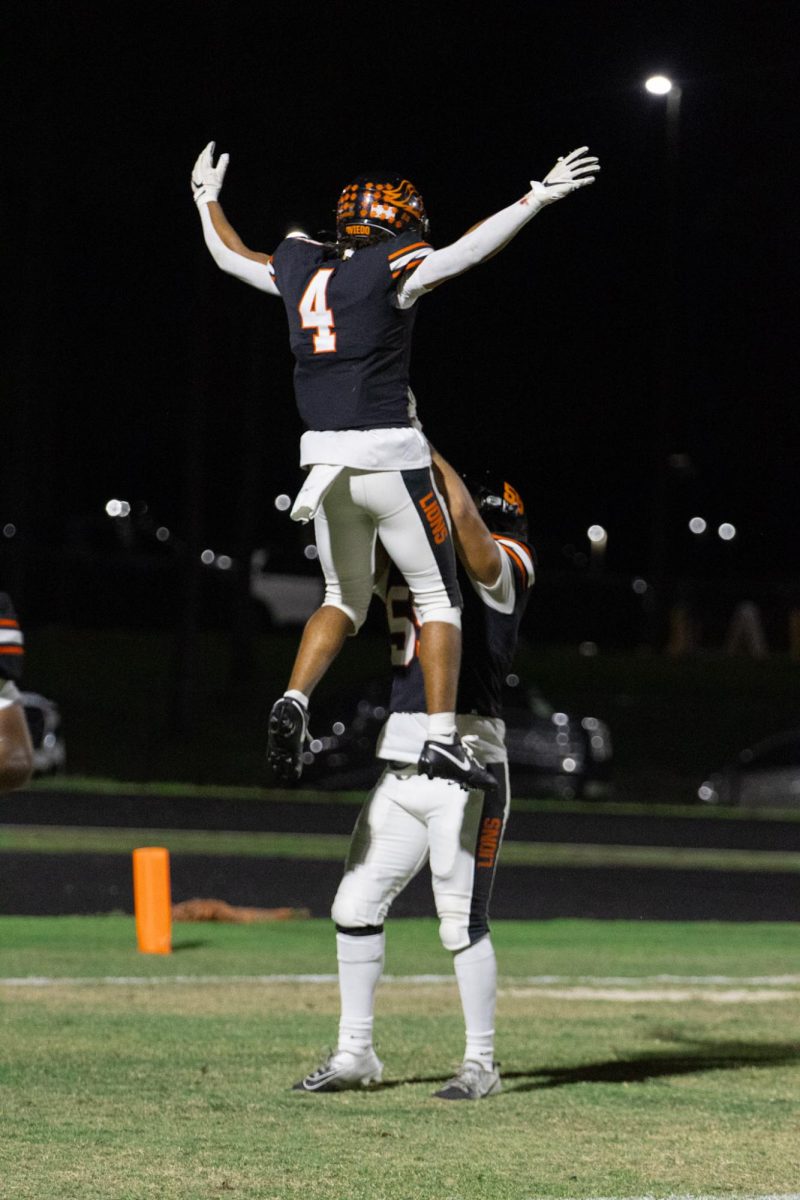
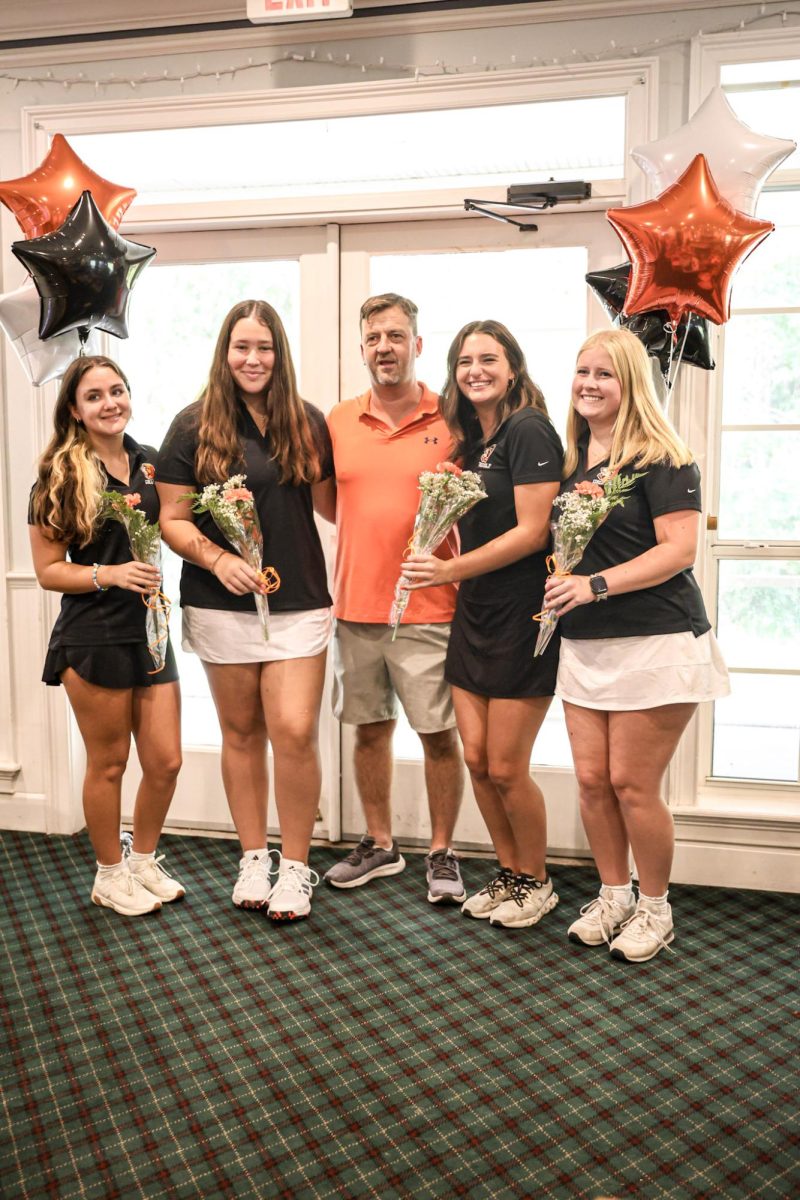


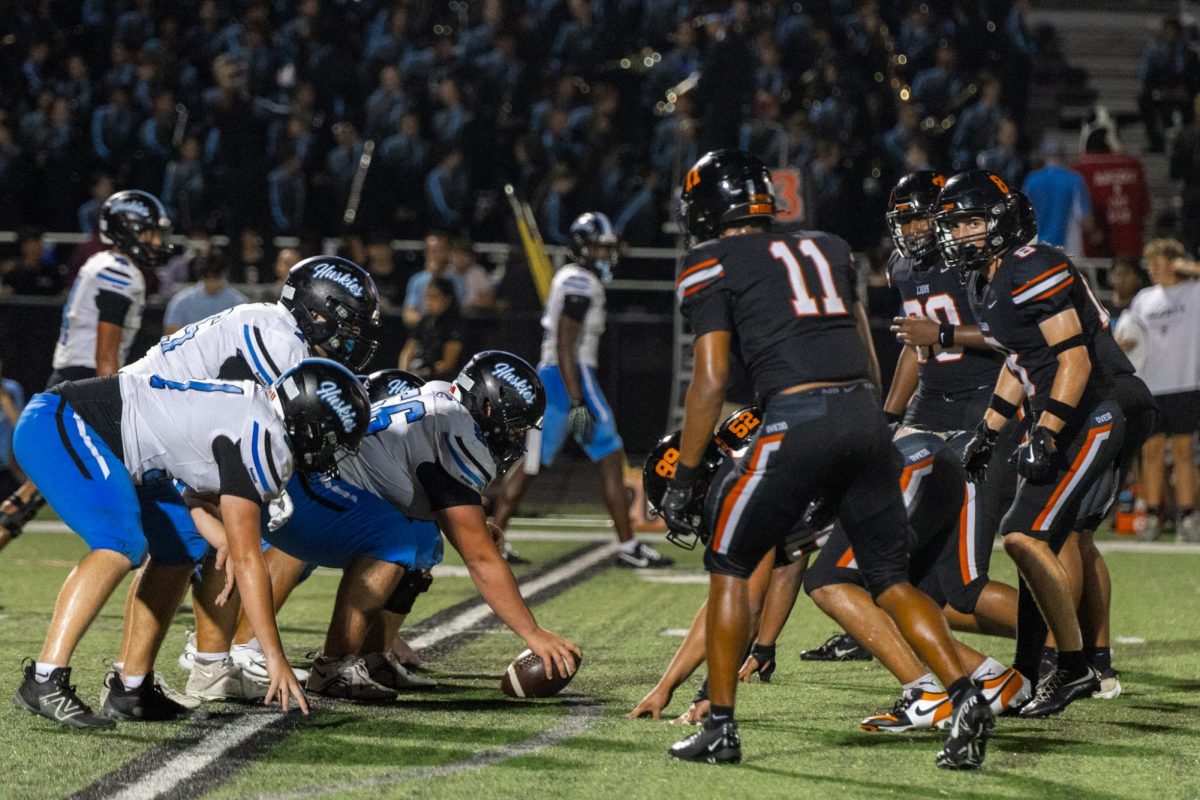
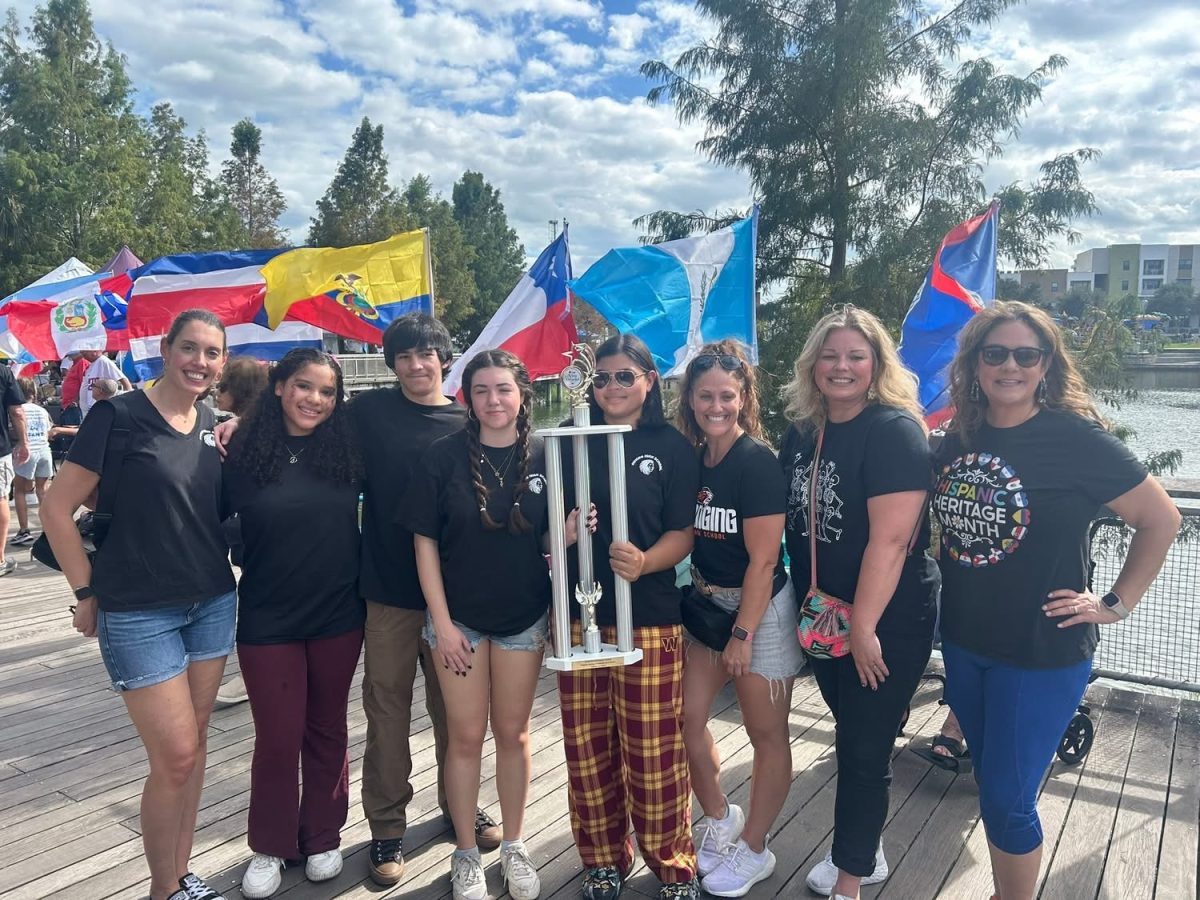
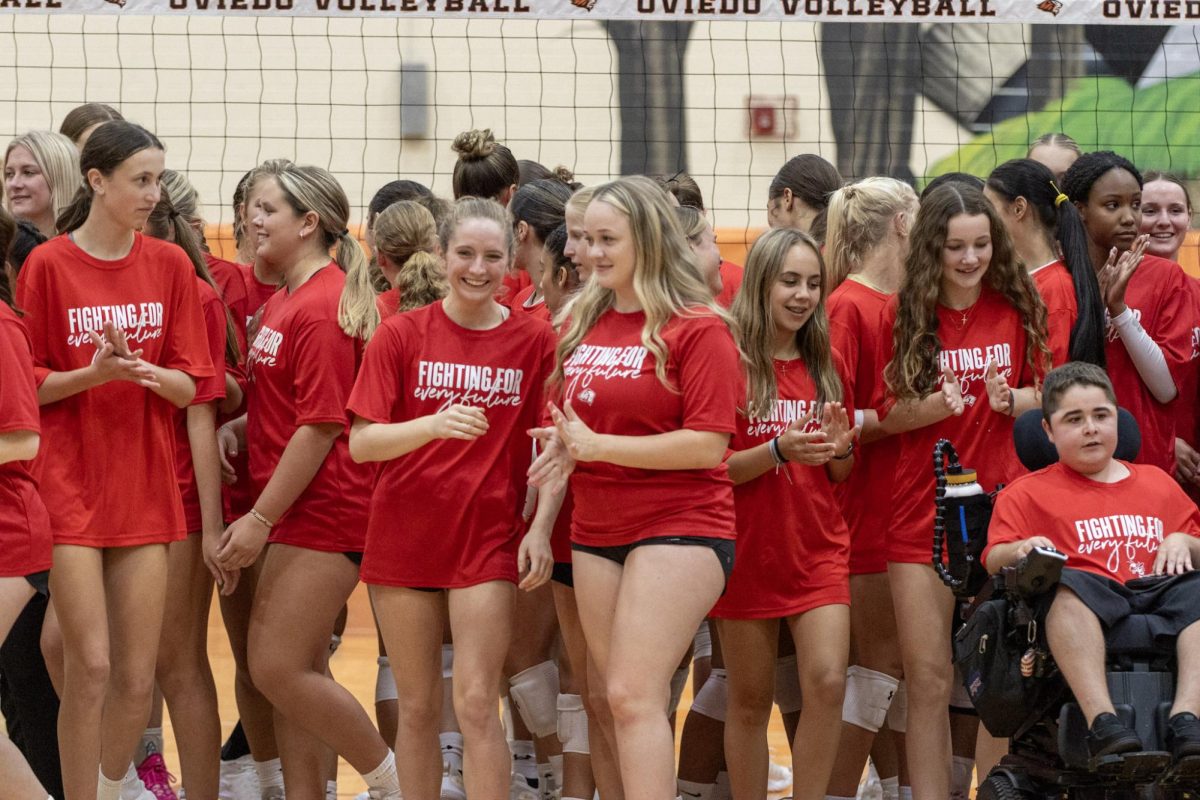
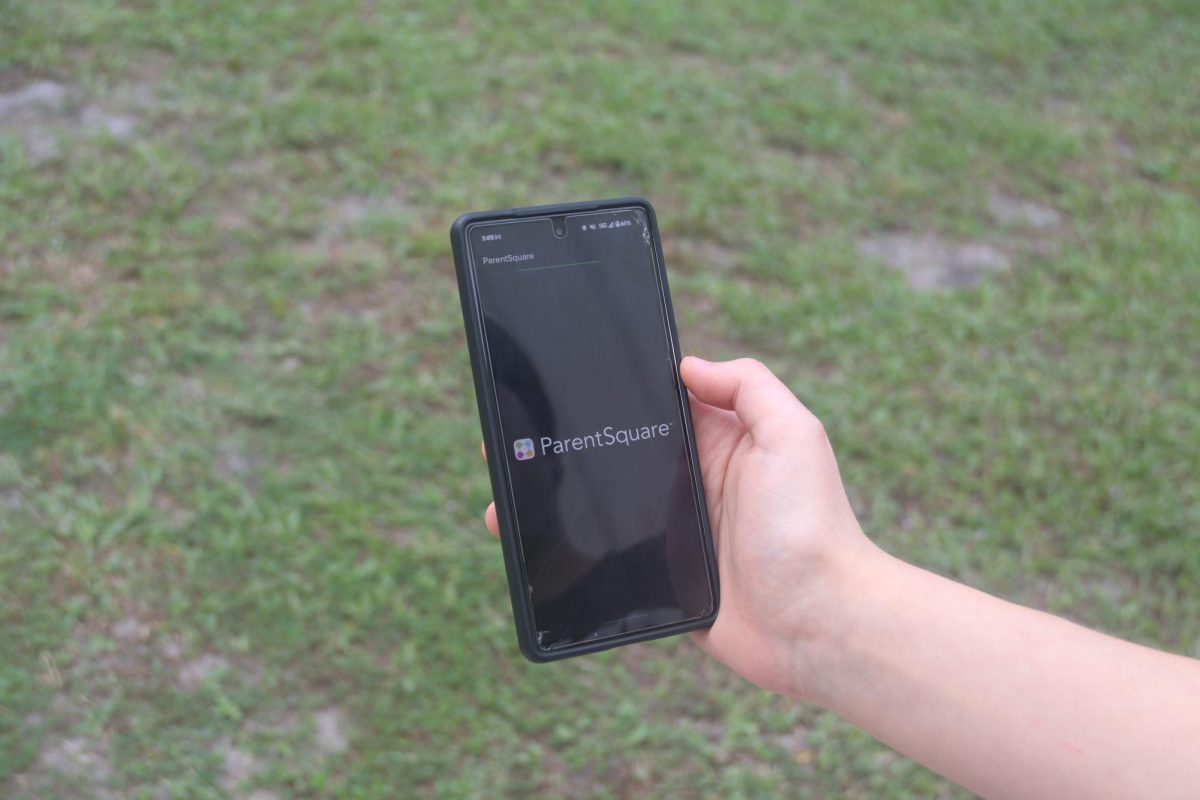
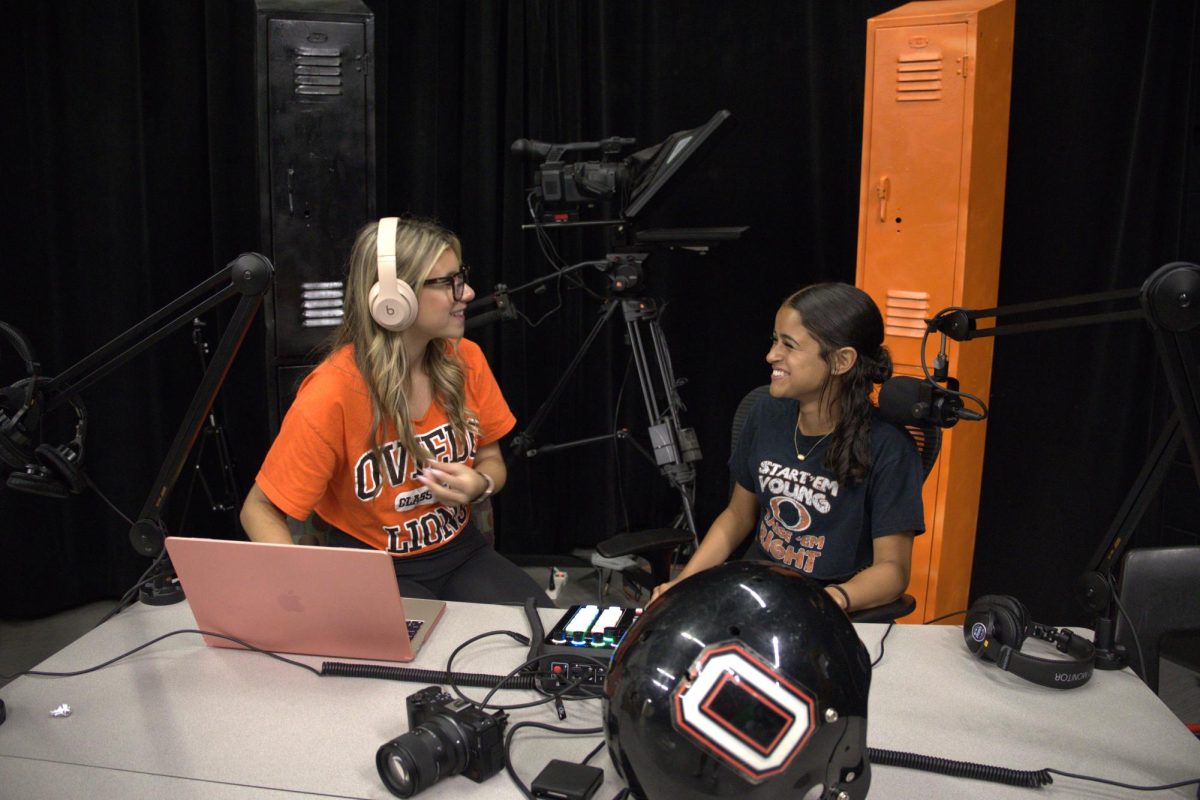

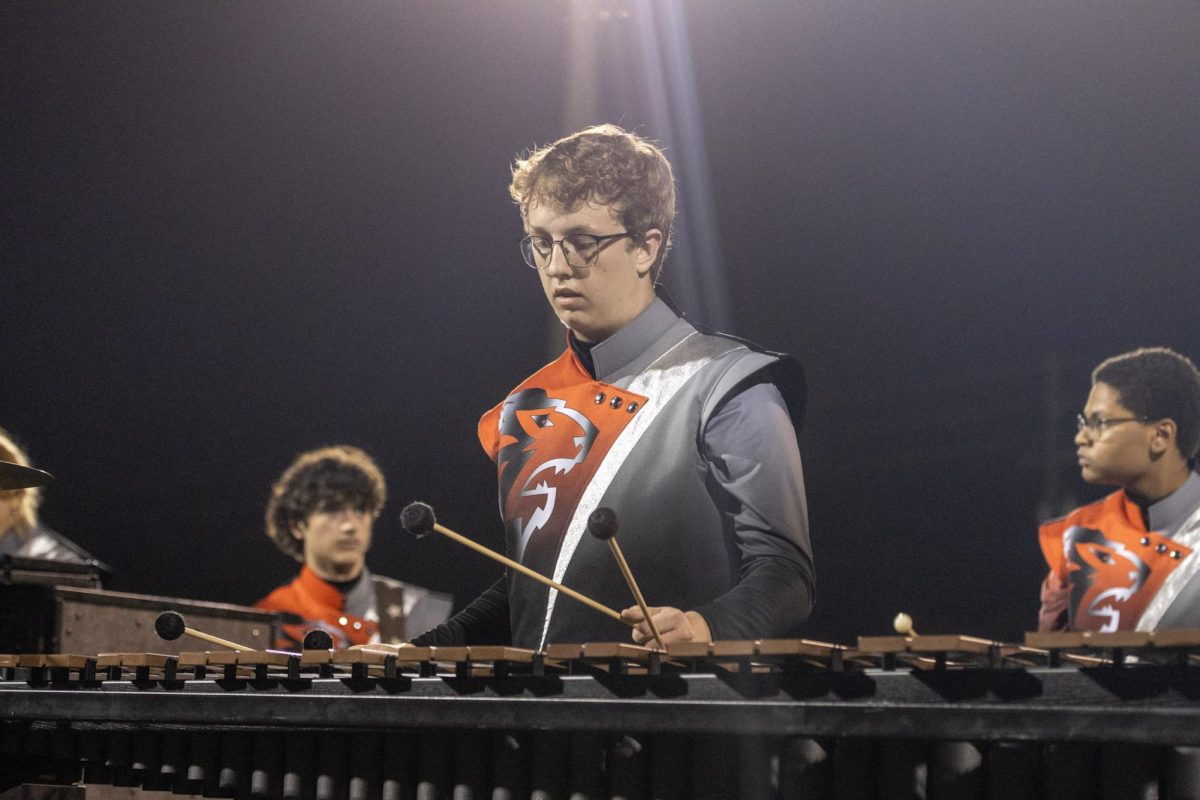


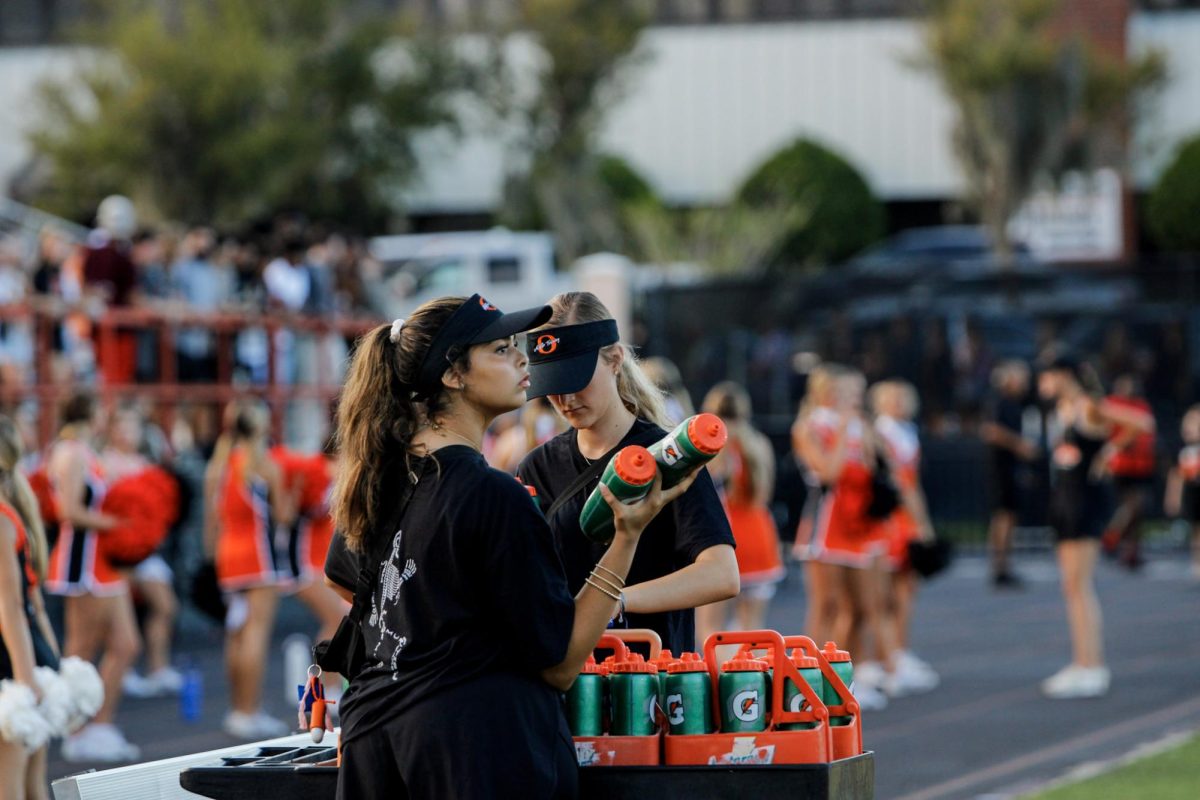
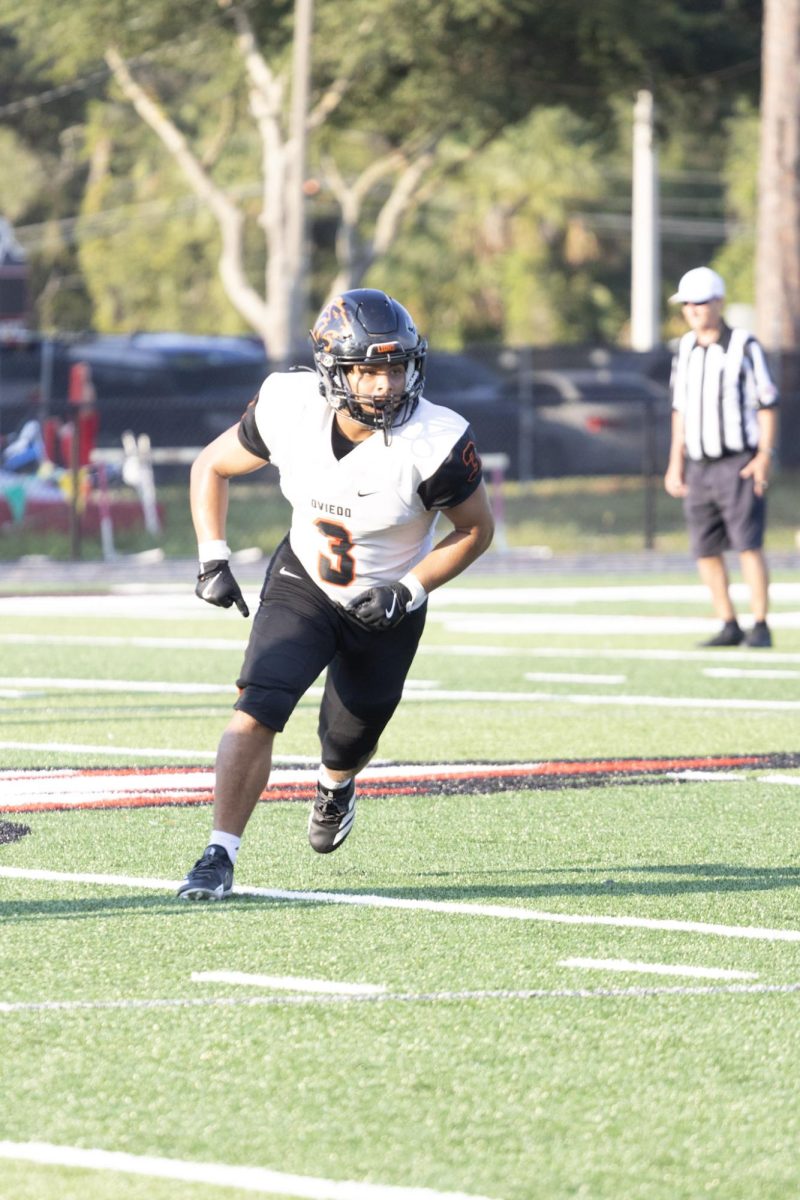


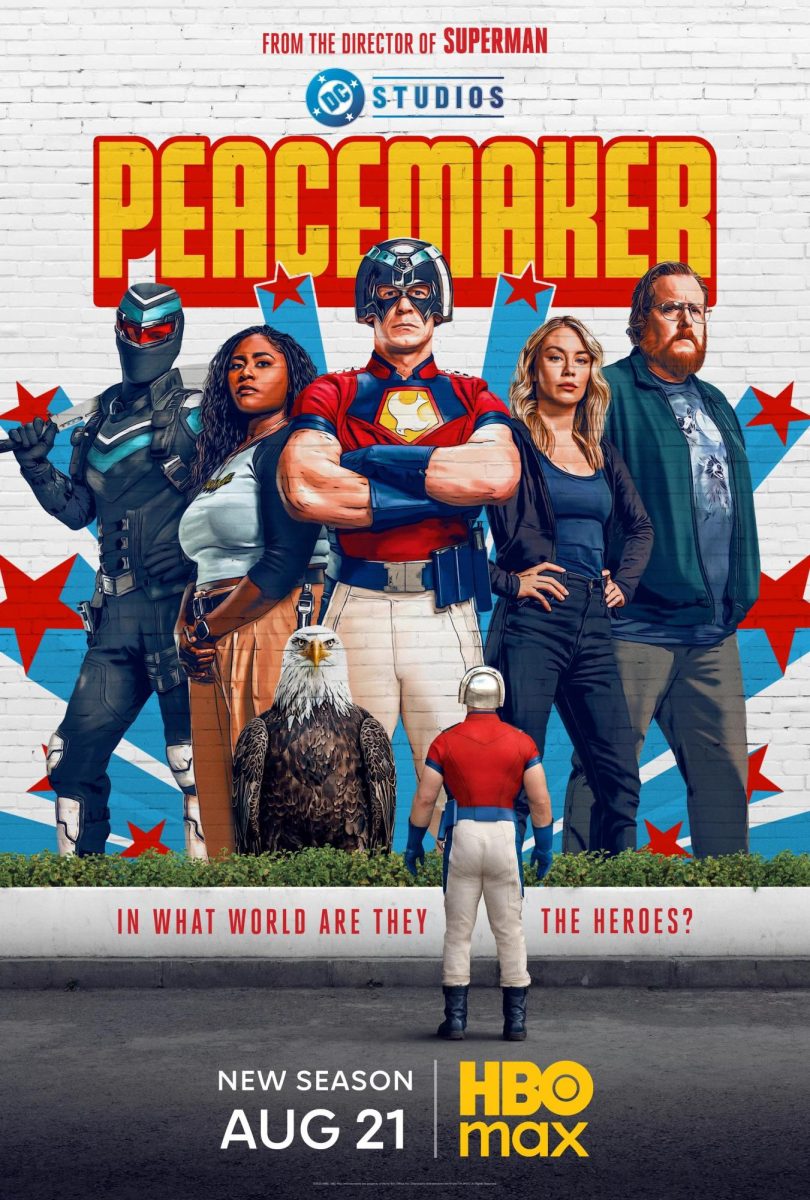
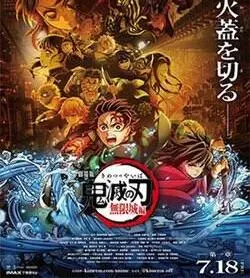
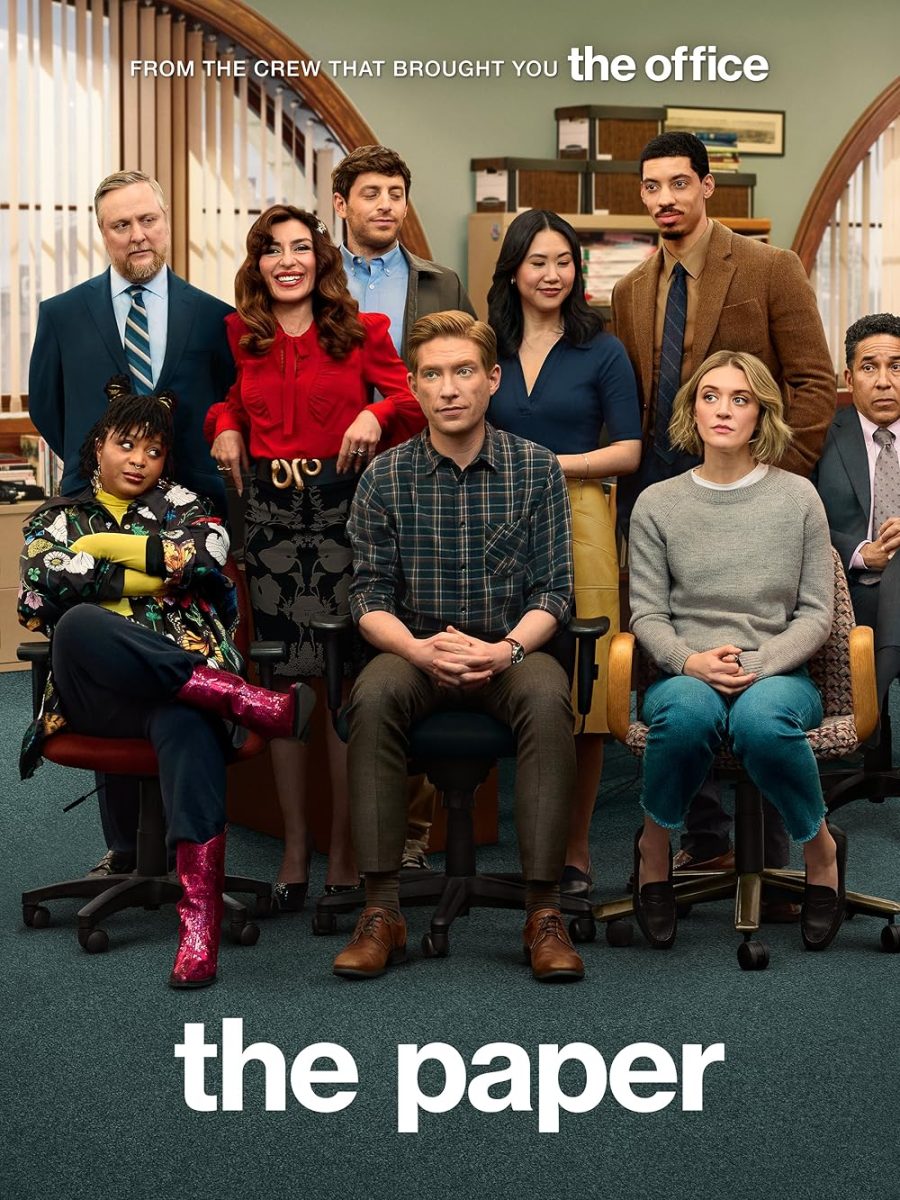

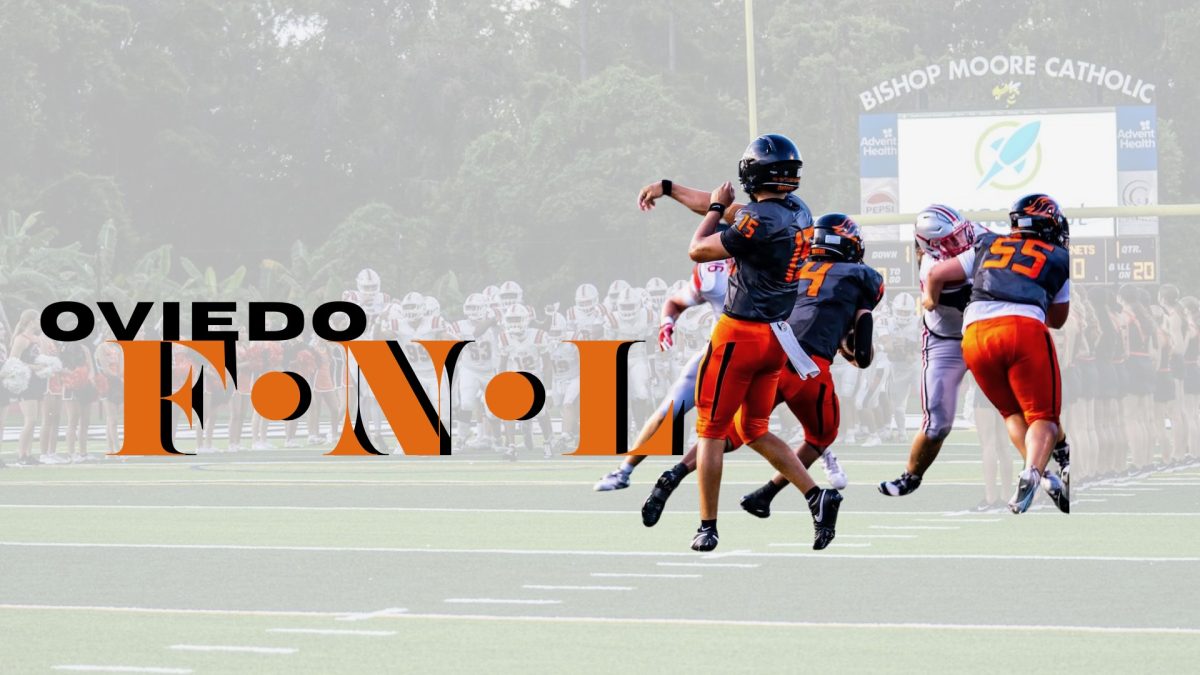


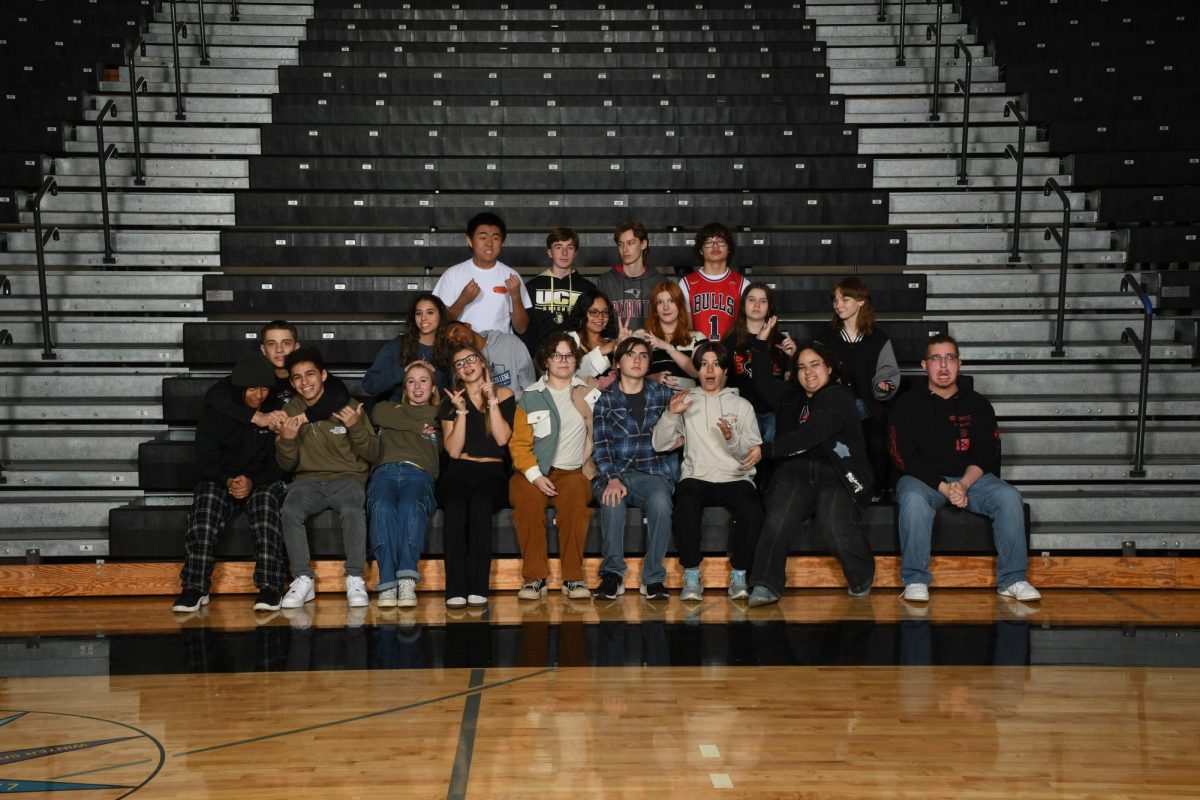
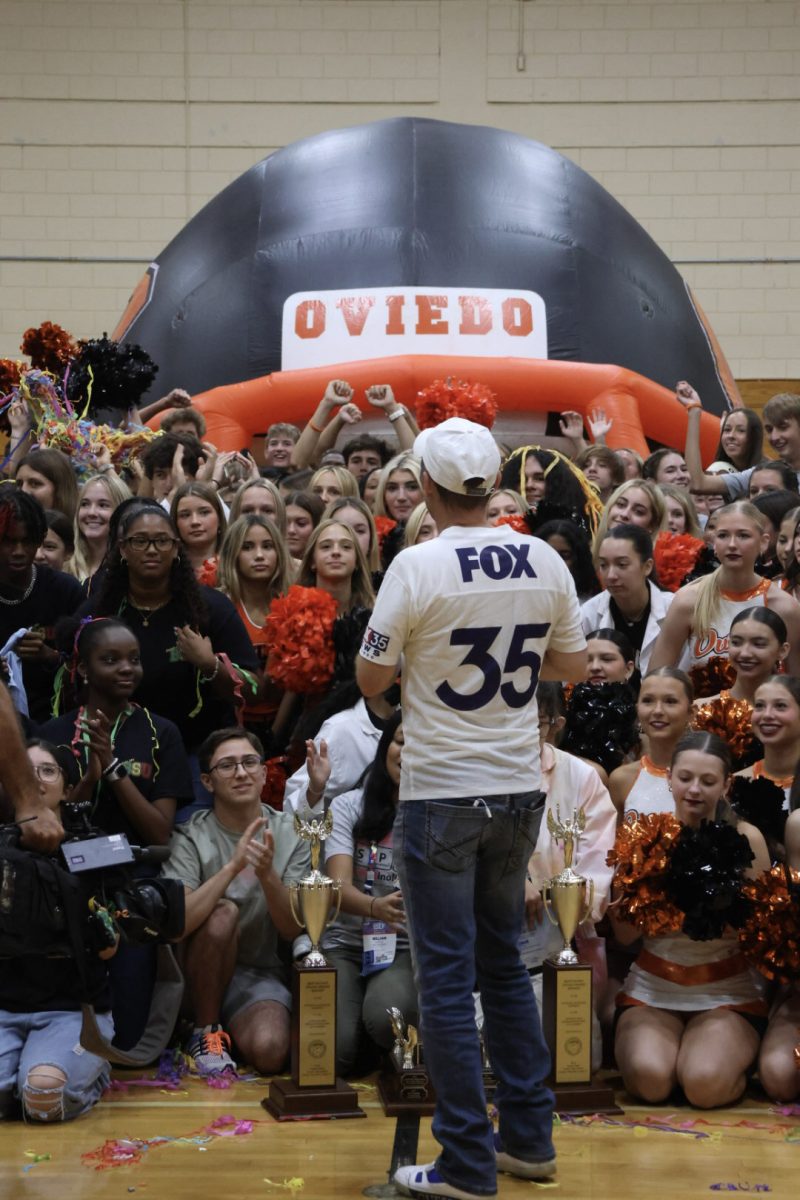
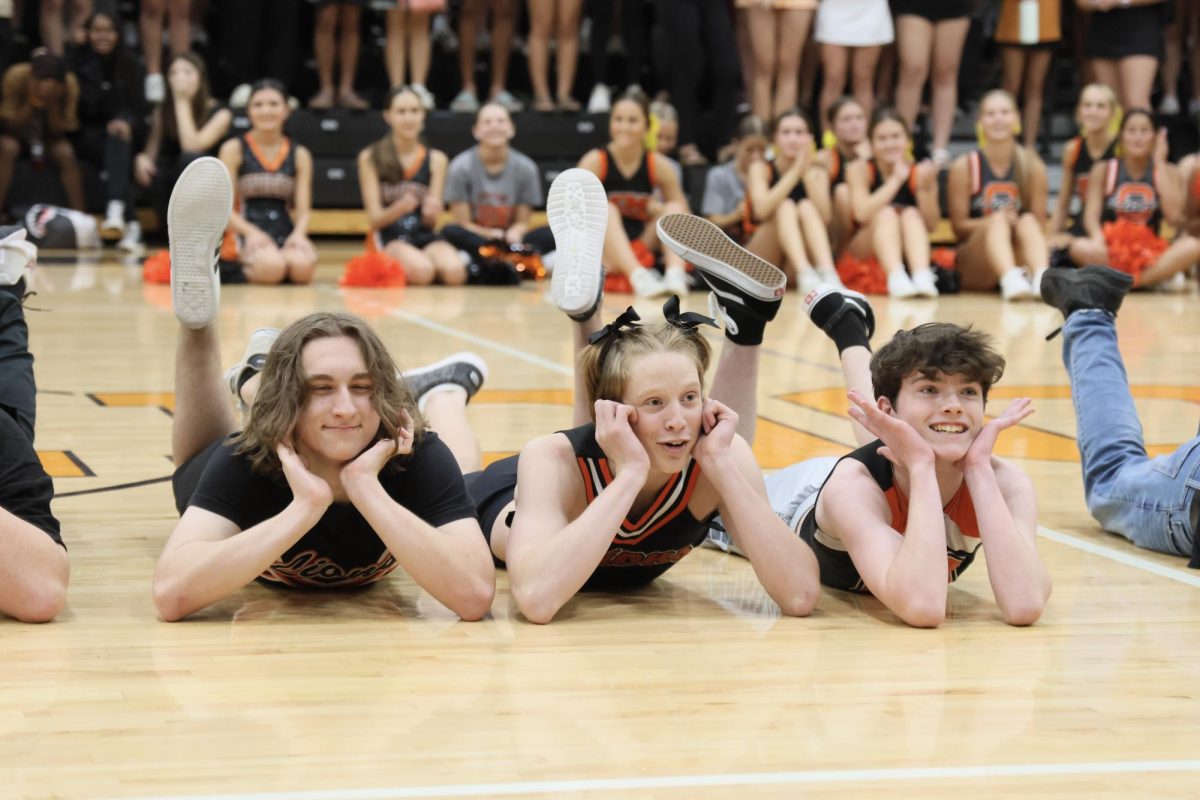


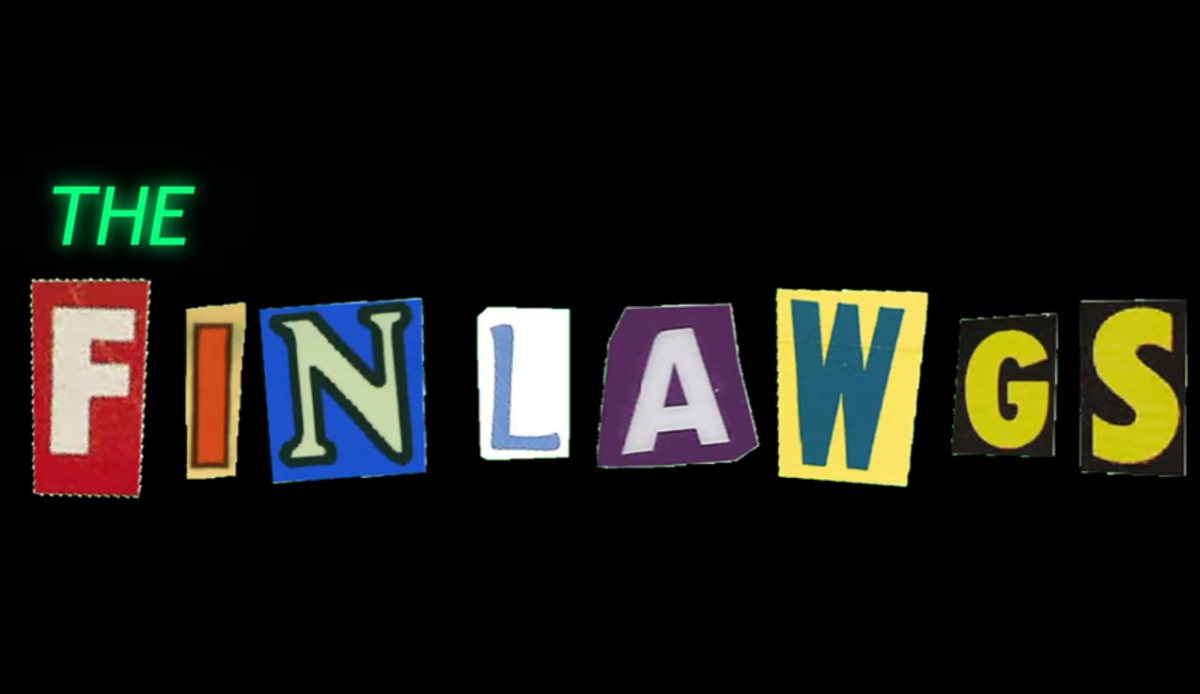
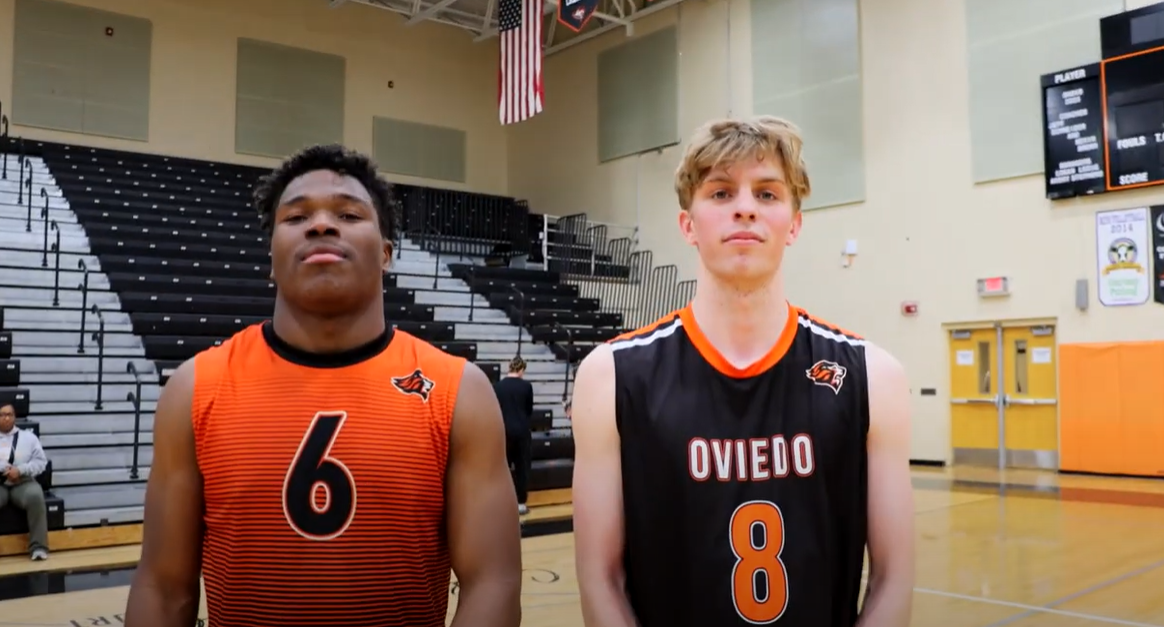
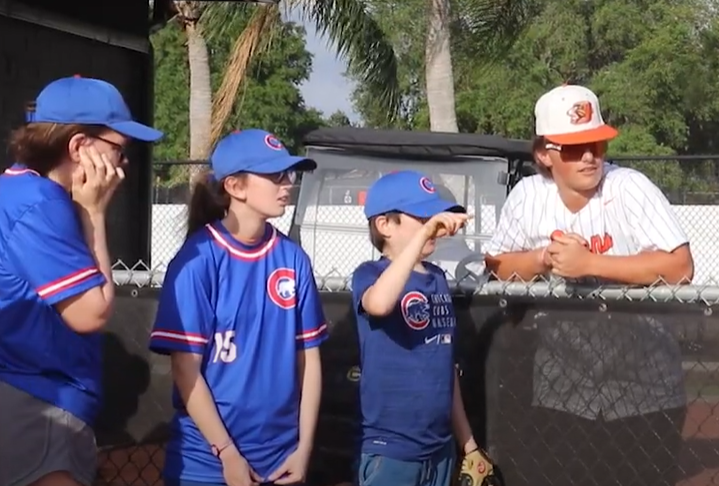






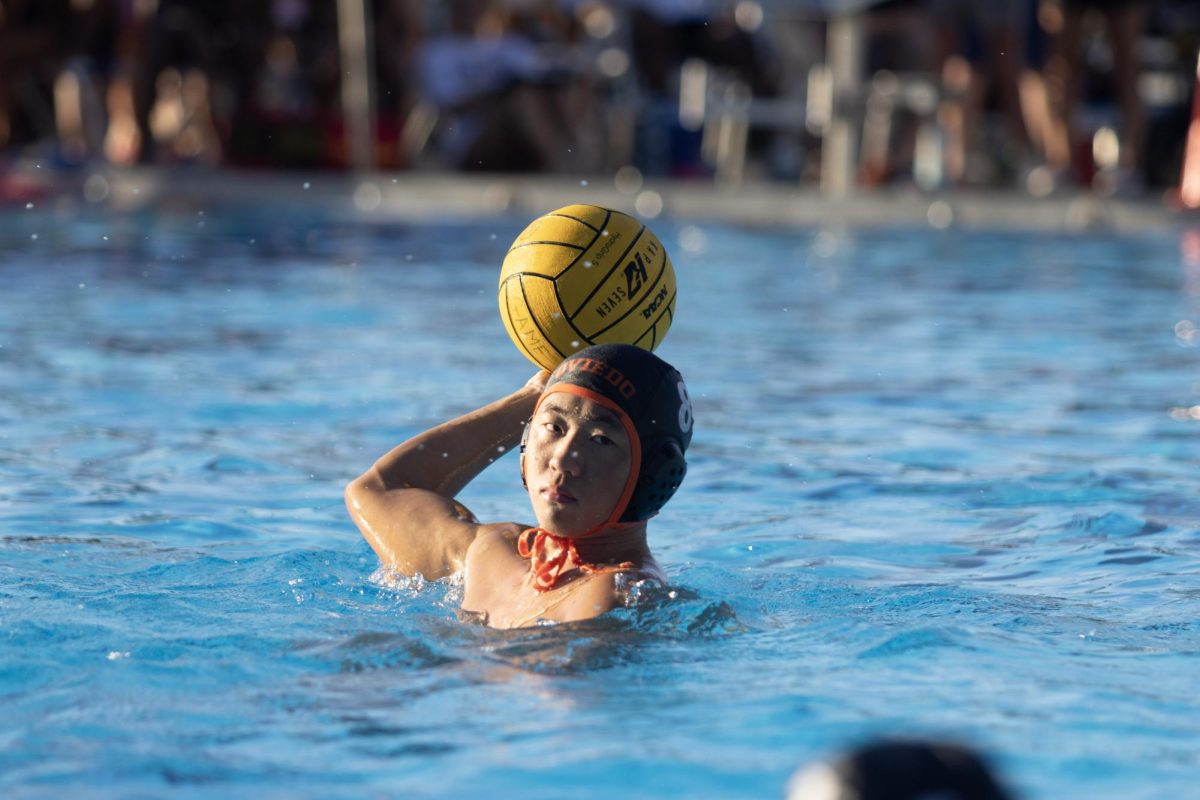
Trenna • Apr 2, 2025 at 7:57 AM
I have never had this teacher, but the way you describe his legacy at this school was great. I think you honored what he taught and has done very well. You are a great writer, we all wish Mr. Patterson the best.
Tsunade • Feb 7, 2025 at 7:13 AM
My Shayla Mr P, will be missed dearly